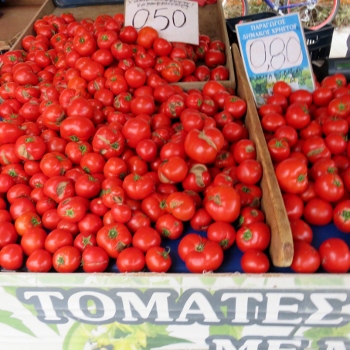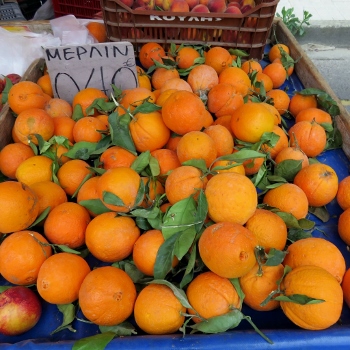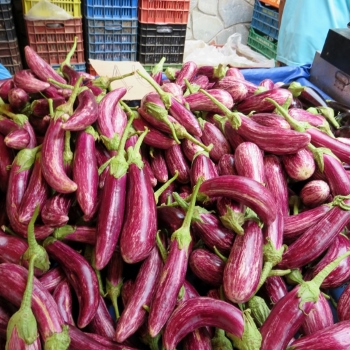
Demetrios Markouizos, MD.,F.A.A.P
The Hellenic Congress of America and Geros of Morea chapter of the Pan Arcadian Federation hosted an important Lecture on “The Mediterranean Diet, Healthy Nutrition and the Secrets of a Long Life,” at the Nikos Andriotis Hall of St. Catherine and St George Greek Orthodox Church in Astoria, NY.
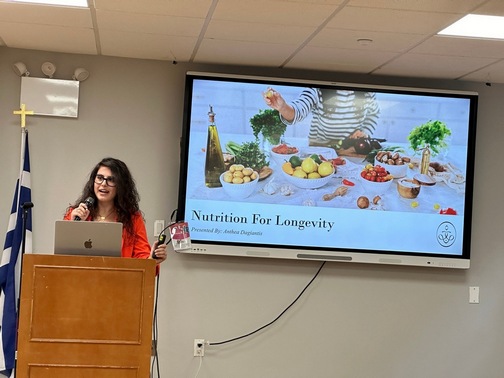
Anthea Dagiantis, Certified integrative Nutrition Health Coach
The speaker was Demetrios Markouizos, MD.,F.A.A.P, Board Certified in Pediatrics, Board Certified in Obesity Medicine and Medical Geneticist. In an exciting PowerPoint presentation, Dr Markouizos described the Mediterranean Diet that leads to a long life. He thanked his daughter and her network for helping create his power point presentation.
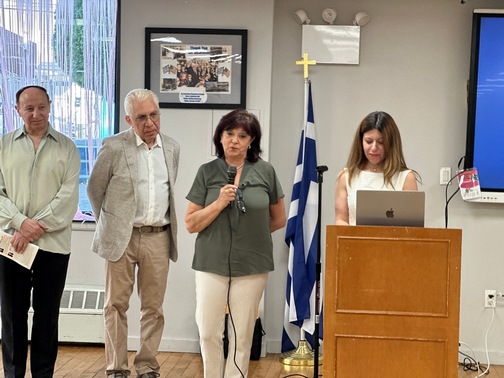
Geros tou Morea Board with speakers
Anthea Dagiantis, Certified integrative Nutrition Health Coach described the fundamentals of health and wellness concerns. The presentation was bilingual Greek/English. Prominent persons of the Greek American NYC community attended.
The speakers explained the basics of healthy eating with the traditional flavors and cooking methods of the people in the Mediterranean region. around vegetables, fruits, herbs, nuts, beans and whole grains and fish. Diet determines health.
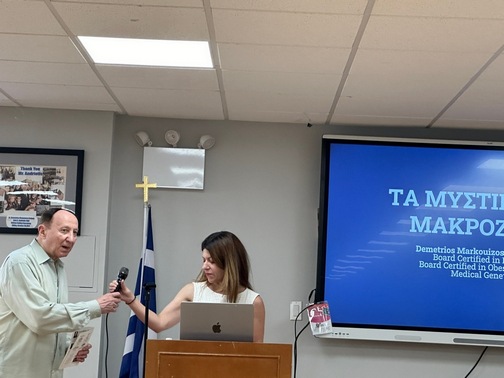
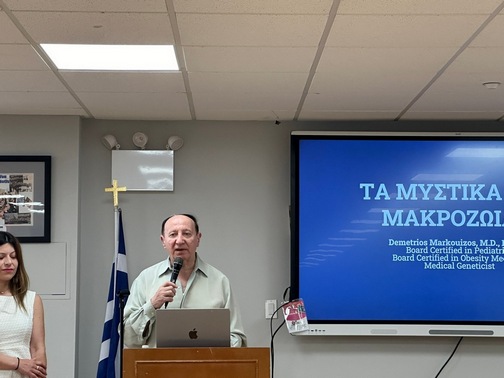
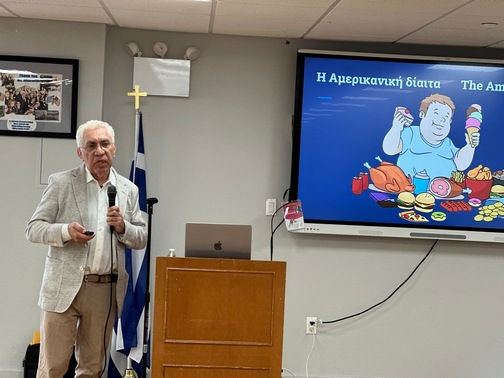

Cardiovascular disease was linked to fewer deaths in some Mediterranean countries, such as Greece and Italy, than in the U.S. and northern Europe. Many cultures have eating patterns similar to the Mediterranean diet, including Japan. The diet is high in vegetables, fruits, Whole grains, Beans, Nuts and seeds, Olive oil., Seasoning with herbs and spices.
The main steps to follow the diet include: Each day, eat vegetables, fruits, whole grains and plant-based fats; Each week, have fish, poultry, beans, legumes and eggs; Enjoy moderate portions of dairy products; Limit how much red meat you eat; Limit how many foods with added sugar you eat; Share meals with family and friends; Get regular exercise; Enjoy wine in moderation if you drink alcohol.
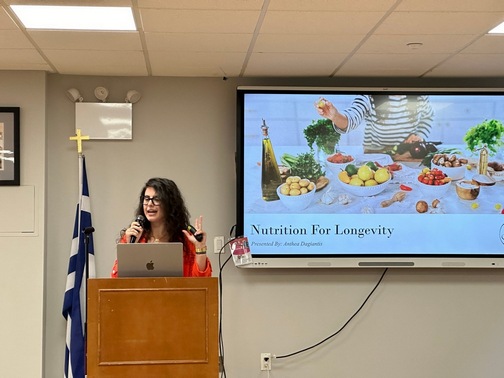


“I am from Thessaloniki, My family is from Constantinople,” said Dr. Markouizos. He is from a real Byzantine background that refers to “the Queen of Cities” Constantinople, with its Greek name and not Istanbul. The Doctor is a humble people’s person who enjoys talking to the average person. The physician became a doctor twice: first in Greece and then passing the Medical Boards in the USA with rigorous training. Our youth have unique opportunities in America to advance in the medical professions. As a result of this informative lecture, our family is planning to add more fish and fiber to our diet.

